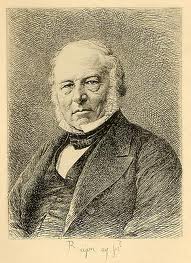Though I am closing in on fifty, by today's standards I know that I am not old. But of course, like many people in this age, the degree to which many aspects of society have changed, can make me feel rather older than my years. And it is not just the computer revolution and the end of so-called "communism" that make me feel a lot older than, say, a twenty-five year old who doesn't really remember the Soviet Union or a time before personal computers. But over and above the huge technological and political changes that have occurred over the past forty years, I believe I have seen a fundamental cultural shift relating to our aesthetic experience. Specifically the close of the 20th century witnessed the death (or dying process) of our traditional art forms, including painting, the novel, theatre, and to a certain degree much of what we know as music.
The explanation for this rather significant claim would, of course, take a great deal more space than what we have on a blog. But given enough space and time, I believe the claim is perfectly demonstrable and therefore justifiable. In the fifties Jean-Paul Sartre wrote a book that is seldom read today entitled Search for a Method. This book was intended as a conceptual introduction to his Critique of Dialectical Reason, a book that for most philosophers was never able to live up to the promise of its title. Anyway, Sartre's most interesting claim Search for a Method was the claim that there is basically only one living philosophy at any given time. Of course for Sartre the "living" philosophy (and keep in mind that this was written in the 1950s) was Marxism and that any anti-Marxist argument was, at best, a pre-Marxist argument. Though today Sartre's argument has a distinct subtext of Ethno-centrism, at the time (before the real linguistic turn in philosophy had taken effect) Sartre had a very good point. What interests me about Sartre's argument though is the degree to which it points to the "living" aspect of a philosophy. At the risk of paraphrasing a philosopher considerably more brilliant than I, Sartre was suggesting that a philosophy was only "living" during the period that other philosophies had not surpassed it and it still was central to the way that we define and understand our experience at the meta-social level. Now, obviously this is an extremely truncated argument that could fill an entire book. There are many potential points of argument but I think this sums it up enough that my handful of readers out there will get the point. For me Sartre's argument became important because I applied it to the life and death of art forms. Art forms are "living" while other art forms have not significantly surpassed them, while they still have new things to say, and while they continue to express and influence the ways we define ourselves as a society. It is by these standards that I believe the significant art forms of the past have. . . . well .. . . passed away. In the early twentieth century the Surrealists attempted to shift the way we look at visual and written art work. They tried to kill the novel because they essentially thought it was a dead art form. The story of the relationship between the Surrealists and the novel is a long and complex one, but I believe that men like Andre Breton and his various followers in the literary movement of Surrealism had a lot to say to us about literature. But people were not really listening because there continued to be a significant profit in the bourgeois novel and the "literary industry" was bound to keep it alive. I have said before, and received much abuse and derision for the claim, that the novel as an art form reaches its apex around the time of Proust. Proust took the psychological aspect of the bourgeois art form of the novel to it complete and somewhat ridiculous conclusion. After the era of the Surrealists and Proust, I think the novel is just in the period of denouement, if you will pardon the expression. (Though I think one can mount an argument that so-called Magic Realism and some science fiction such as the work of Samuel Delany, are genuine steps in the development of the novel) But in general I think all the art forms that were still so important at the beginning of the 20th century were more or less deceased by the beginning of the 21st century. Not only have the models and markets changed, but technology has rendered the old art forms largely mute.
When I was silly enough to talk about these things in public, people usually reacted to these claims with a pretentious smirk as though to say that either I had no idea what I was talking about or that if I were an artist or a writer I would know better. Of course, I am now both a professional writer and painter and I am more convinced than ever that my opinion on this matter is correct. I have my own personal reasons for being an artist and a writer and it doesn't really trouble me that traditional arts form have largely died. I can live with the status of being an anachronism. But the university educated, cultural consumers of any age are loath to give up their traditional art forms because it is these that they believe separate them from the hoi polloi. These people would never, of course, admit that a major aspect of their attachment to certain art forms is actually a way to express their elitism. Many of them consider themselves enlightened and even leftwing and they sit in their well-decorated, intercity, red-brick houses reading novels that 90 percent of people couldn't care less about and they secretly love the status that they believe themselves to possess. But really they are just feeding on the corpse of a bygone era.
Katalog Dapur Aqiqah
2 months ago







